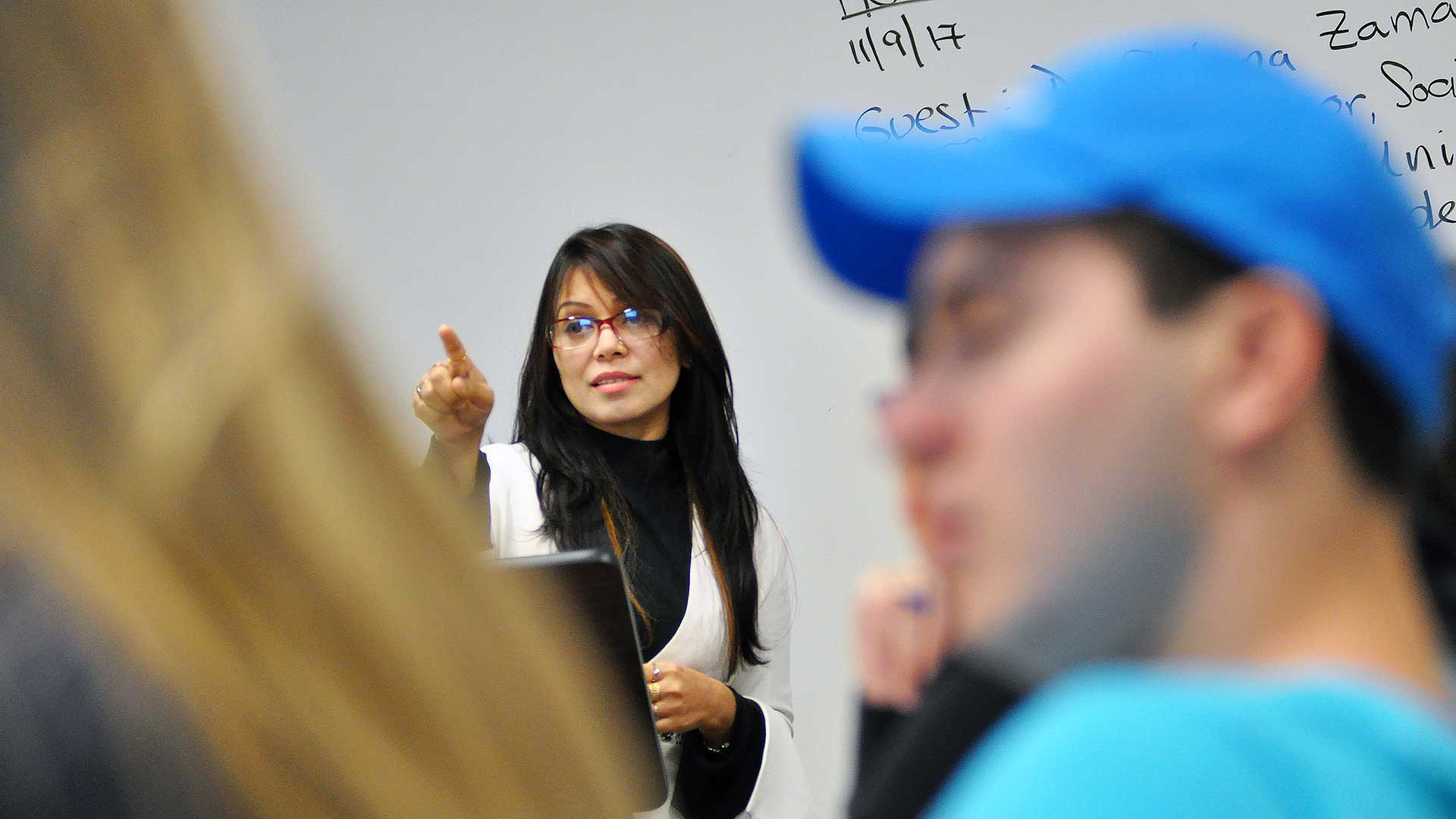
Analyzing Health
Healthcare Administration
Our faculty continually strive to globalize the curriculum, challenging students to broaden their perspectives on various course topics through the lens of different cultures around the world.
In addition to required readings and in-class discussions, global views are introduced to students by experts with both personal and professional familiarity beyond U.S. borders. Recently, Dr. Farhana Zaman, professor of sociology at Jagannath University in Bangladesh, spoke to students in Dr. Myra Edelstein’s Healthcare Quality and Risk Management class about analyzing health from a sociological perspective.
Zaman first established the difference between disease (biological) and illness (psychological), then challenged students to consider how social factors impact not only exposure to sickness, but how it is perceived, presented, diagnosed and, ultimately, treated.
Such social determinants include age, gender, socioeconomic status, ethnic traditions and religion. Zaman said socioeconomic status, for instance, directly impacts where a person lives and works. Those in lower economic classes are exposed to more pollutants, higher accident rates, etc. that result in overall poorer health than people more privileged.
“Even here, people with lower socioeconomic backgrounds suffer poorer health,” Zaman said. “American adults with college educations enjoy better health than those without a college education.
“If you are future policymakers and you want to give high quality health care services to all people, do you think that will work out?” she asked.
Not likely, was the consensus among students, because even if health care could be equalized, living conditions and lifestyles could not be. Just another challenge facing our future health care administrators and managers.